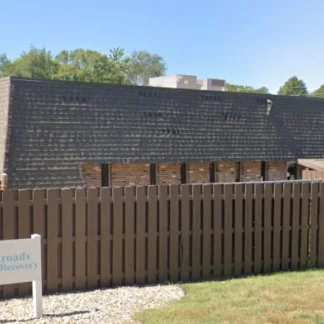Lutheran Family Services
Lutheran Family Services, located in Omaha, Nebraska, provides addiction treatme...
Inroads to Recovery is an accredited dual diagnosis substance use disorder rehab center located in Omaha, NE. Inroads to Recovery helps adults sustain stability and recovery from mental health and addiction to alcohol and other drugs.
Inroads to Recovery offers a range of rehab levels of care designed to support individuals on their path to overcoming substance abuse and addiction. Their services include:
The detoxification program at Inroads to Recovery provides a safe and monitored environment for individuals to rid their bodies of harmful substances. Medical professionals offer assistance and supervision during this critical initial phase of treatment.
Rooted in the 12 Step Recovery Model, the residential drug rehab program offers a structured and supportive setting for individuals requiring intensive care. During an average length of stay is 30 days, residents receive evidence based therapies and personalized treatment plans.
The intensive outpatient program (IOP) offers flexibility for individuals who want to maintain daily responsibilities while receiving treatment. Participants attend therapy sessions and counseling to strengthen their recovery journey.
The outpatient program provides ongoing support and treatment for individuals who have completed higher levels of care. It focuses on maintaining progress, preventing relapse, and supporting sustained recovery.
Inroads to Recovery provides specialized treatment for individuals struggling with opioid use, offering evidence based approaches to address the unique challenges of opioid addiction.
The rehab also offers medication assisted treatment (MAT) for individuals with specific substance use disorders. MAT combines FDA approved medications with counseling and behavioral therapies to support recovery.
Contact us for more information: (402) 932-2248

Connect with Inroads to Recovery by calling their admissions team directly.
(402) 932-2248 Website Get DirectionsResearch clearly demonstrates that recovery is far more successful and sustainable when loved ones like family members participate in rehab and substance abuse treatment. Genetic factors may be at play when it comes to drug and alcohol addiction, as well as mental health issues. Family dynamics often play a critical role in addiction triggers, and if properly educated, family members can be a strong source of support when it comes to rehabilitation.
Group therapy is any therapeutic work that happens in a group (not one-on-one). There are a number of different group therapy modalities, including support groups, experiential therapy, psycho-education, and more. Group therapy involves treatment as well as processing interaction between group members.
In individual therapy, a patient meets one-on-one with a trained psychologist or counselor. Therapy is a pivotal part of effective substance abuse treatment, as it often covers root causes of addiction, including challenges faced by the patient in their social, family, and work/school life.
Trauma therapy addresses traumatic incidents from a client's past that are likely affecting their present-day experience. Trauma is often one of the primary triggers and potential causes of addiction, and can stem from child sexual abuse, domestic violence, having a parent with a mental illness, losing one or both parents at a young age, teenage or adult sexual assault, or any number of other factors. The purpose of trauma therapy is to allow a patient to process trauma and move through and past it, with the help of trained and compassionate mental health professionals.
Group therapy is any therapeutic work that happens in a group (not one-on-one). There are a number of different group therapy modalities, including support groups, experiential therapy, psycho-education, and more. Group therapy involves treatment as well as processing interaction between group members.
In individual therapy, a patient meets one-on-one with a trained psychologist or counselor. Therapy is a pivotal part of effective substance abuse treatment, as it often covers root causes of addiction, including challenges faced by the patient in their social, family, and work/school life.
Trauma therapy addresses traumatic incidents from a client's past that are likely affecting their present-day experience. Trauma is often one of the primary triggers and potential causes of addiction, and can stem from child sexual abuse, domestic violence, having a parent with a mental illness, losing one or both parents at a young age, teenage or adult sexual assault, or any number of other factors. The purpose of trauma therapy is to allow a patient to process trauma and move through and past it, with the help of trained and compassionate mental health professionals.
In individual therapy, a patient meets one-on-one with a trained psychologist or counselor. Therapy is a pivotal part of effective substance abuse treatment, as it often covers root causes of addiction, including challenges faced by the patient in their social, family, and work/school life.
Trauma therapy addresses traumatic incidents from a client's past that are likely affecting their present-day experience. Trauma is often one of the primary triggers and potential causes of addiction, and can stem from child sexual abuse, domestic violence, having a parent with a mental illness, losing one or both parents at a young age, teenage or adult sexual assault, or any number of other factors. The purpose of trauma therapy is to allow a patient to process trauma and move through and past it, with the help of trained and compassionate mental health professionals.
Trauma therapy addresses traumatic incidents from a client's past that are likely affecting their present-day experience. Trauma is often one of the primary triggers and potential causes of addiction, and can stem from child sexual abuse, domestic violence, having a parent with a mental illness, losing one or both parents at a young age, teenage or adult sexual assault, or any number of other factors. The purpose of trauma therapy is to allow a patient to process trauma and move through and past it, with the help of trained and compassionate mental health professionals.
Lutheran Family Services, located in Omaha, Nebraska, provides addiction treatme...
UTA Halee Girls Village is a private rehab located in Omaha, Nebraska. UTA Halee...
Childrens Behavioral Health is a private rehab located in Omaha, Nebraska. Child...
Lutheran Family Services of Nebraska expresses God's love for all people by prov...